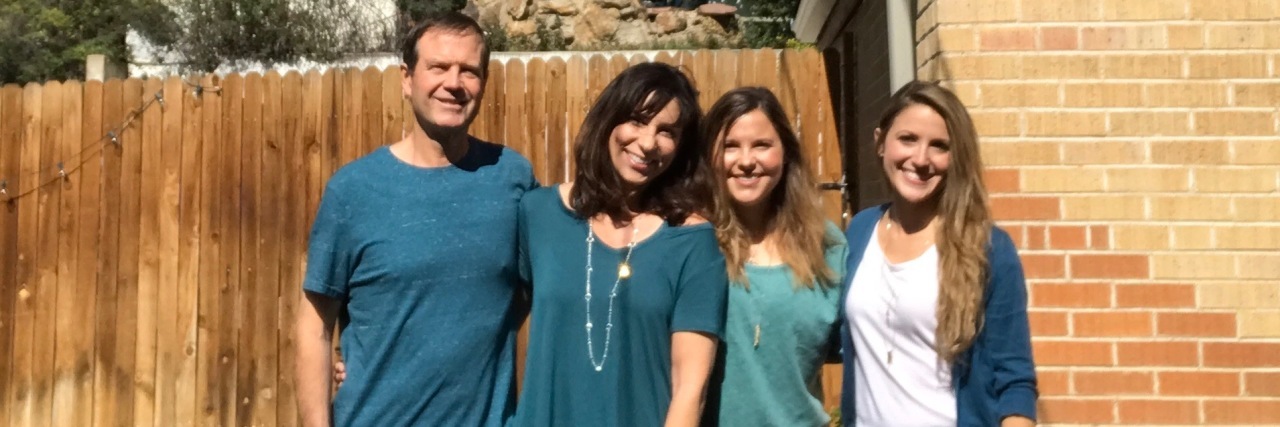How My Chronic Illness Affects the Roles I Play in My Family
Since I became sick, my family dynamic has changed. While my dad was diagnosed with rheumatoid arthritis (RA) in 2004, the impact of chronic illness was not as apparent until 2009, the year I was diagnosed. Of course, my father’s diagnosis changed the family dynamic as it impacted the activities we were able to do as a family. As young children, my sister and I were fairly ignorant of the effects of chronic illness. Five years later, after determining that I was chronically ill, the relatively charmed and easy family we once knew was lost and changed forever.
When I reflect on how chronic illness has impacted my life, I clearly recognize how it affects my family. I am a daughter, a granddaughter, a sister, and a niece; each of those roles drastically changed in the past 10 years. When I first became sick in high school, I spent much of my time homebound. I clearly remember sleeping on the couch for hours every day — my mom right beside me. Although I was always close with my parents, I inevitably created a special bond with them. They knew each ache and pain I experienced and they were always in the front line to fight for my health. Whether I need a shoulder to cry on or an advocate beside me in a doctor’s office, my parents are always willing. Traveling across the country for a doctor’s visit, or spending five nights in a hospital cot is a no-brainer for them. They have had to sacrifice their lives for me to be able to receive the care I need. They are determined to create a life for me that is filled with joy, love, and good health.
My sister, who is four years older than me, plays a critical role in my health journey. She is often the one to pick up the pieces that I am unable to, whether that is to leave work early to pick me up from a procedure or to do the usual household duties. As a chronically ill person, it can be difficult to think about how your health affects others. Healthy siblings frequently feel guilt regarding their health, but they also may feel ignored, as sick siblings
generally require more attention. I try to make my sister feel appreciated for all she does and how much she contributes to my wellbeing. There are times where it may seem that my parents put me before her, and while it may be due to my health, it still is not fair.
Feeling like a burden is normal for someone who is chronically ill. I feel that I add additional stress and repetitively bring sadness to my family as I constantly undergo medical treatment. It is unnatural for a parent to be healthier than their child and I see how that affects my parents. I imagine the fear and grief they feel as they picture how my adulthood will be considerably different from theirs. Each new diagnosis, unsuccessful procedure, and unanswered questions hit them deeply as they feel helpless. Not only do I feel like an emotional burden, but I also feel like I am a financial burden. I am not an independent 23-year-old; I rely on my parents for everything. My parents provide my health insurance, groceries, rent, car payments, and anything else that requires money. It is hard to be so dependent and at times it can be embarrassing too. I fear that I may always have to rely on my parents, even though they insist that they will do anything for me.
While chronic illness can adversely impact the family dynamic, it is important to not ignore the positives. My family is stronger than most. We undoubtedly support each other every step of the way and we make sure to celebrate even the littlest of achievements. We are honest with each other; we are not afraid to admit when we feel weak or when we need help. A large part of my family’s contribution is the awareness they bring to chronic
illnesses. They are committed to raising awareness and helping other struggling families find answers. We have a profound appreciation for each other that commonly goes unseen in healthy families. Even though I am not the daughter and sister I imagined I would be, I know that I am an integral part of my family and that my health is simply a part of who I am. I know that whatever I need, my family will always be the first to offer it up. I am not alone on this journey — my chronic illness is my family’s chronic illness.

